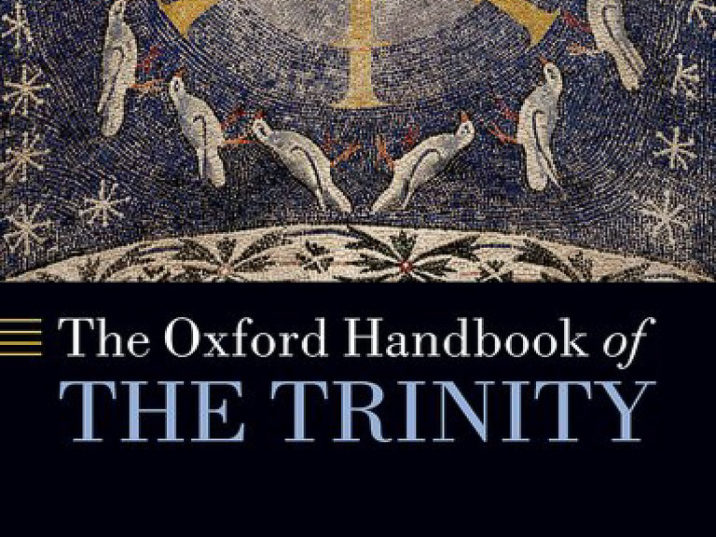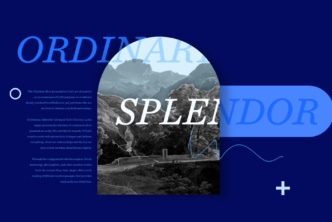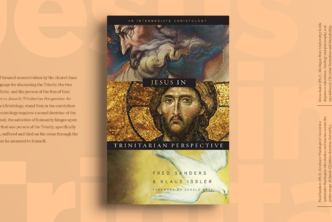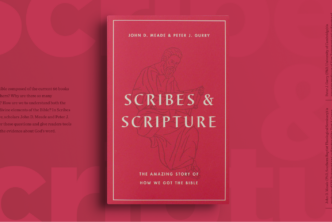The sixth interview in our series on the OUP Handbooks is with Matthew Levering, co-editor of The Oxford Handbook of the Trinity. Some of the best of the Oxford Handbooks series are entering the Logos digital library, and they are currently available at a discounted pre-order price. Individual volumes are available, or you can also save money investing in the 8-volume Oxford Handbooks Biblical Studies Collection or the 26-volume Oxford Handbooks Religion Collection.
In what follows, Matthew and I discuss various aspects of the Trinity handbook, including the vast scope of the work and what makes this resource distinct amongst other works on the Trinity.
What is special about the OUP Handbooks, and why should students and scholars use them in their research?
The value of an Oxford Handbook generally is the range of historical breadth with which a topic can be treated. For example, the Oxford Handbook of the Trinity has 24 historical essays (including the essays on Scripture) and so this amounts to a superb introduction to the sources and history of Trinitarian theology.
In addition, Oxford Handbooks tend to attract the very best scholars in the field – usually mainly from English-speaking lands, but also scholars working in French, German, and other languages. The Oxford Handbook of the Trinity is co-edited by the Swiss theologian Gilles Emery, who teaches theology at Fribourg (Switzerland), and it contains the work of a number of eminent European scholars in addition to leading English-speaking scholars. Students should consult the Oxford Handbook of the Trinity so as to gain a clear introduction to any topic in Trinitarian theology.
Tell us a bit about what you wished to accomplish as editors of The Oxford Handbook of the Trinity and how you think that goal was achieved.
Essentially, the Handbook was intended to have three parts: biblical (6 essays – or 5 if one counts Khaled Anatolios’s essay as more properly belonging among the ‘historical’ essays); historical (18 or 19 essays); and systematic and contemporary (19 essays).
The historical section treats the patristic period, East and West, and then treats the developments in medieval Trinitarian theology, with four essays on Western developments and one essay on Byzantine Trinitarian theology. The final nine essays of the historical section also focus on the West, with close attention to both Catholic and Protestant developments. There is one essay on Eastern Orthodox developments, focusing on the twentieth century.
The biblical section has some truly superb essays by Christopher Seitz, Kavin Rowe, Simon Gathercole, and Ben Witherington III. Lastly, the systematic and contemporary section has a notable discussion of ‘Trinitarian Dogmatics’ with eight essays in total, by some truly major Protestant and Catholic dogmaticians, including Kathryn Tanner, Thomas Weinandy, Bruce Marshall, Risto Saarinen, and others.
Then there is an extensive contemporary discussion of ‘The Trinity and Christian Life’ (7 essays), engaging such topics as the liturgy, art, the moral life, prayer, feminism, and political theology. Again the contributors are outstanding: they include Geoffrey Wainwright, Romanus Cessario, Amy Laura Hall, Francesca Murphy, and Nonna Verna Harrison, among others. The final four essays are on ‘Dialogues’ with notable studies by David Fergusson, Ellen Charry, Gavin D’Costa, and Tracey Rowland. Overall, especially for Catholic and Protestant theology of the Trinity, the result is impressive.
For readers unfamiliar with your work, can you tell us about your background and how that prepared you both as editors of the Handbook?
Since I (Matthew Levering) am writing this, I can safely say that Gilles Emery is among the great students of the Trinity in our era. He is best known for his masterful books on Thomas Aquinas’s Trinitarian theology—books that are both original in their perceptions and strikingly clear and accessible in their writing style. He also has an introductory textbook titled ‘The Trinity’ from Catholic University of America Press. In the domain of Trinitarian theology, there is no historical period with which he is not closely familiar. He has a deeply personal Trinitarian spirituality, as well.
For my part, I have written books engaging with Trinitarian theology from various angles (both before and after editing this Handbook), including Scripture and Metaphysics and Engaging the Doctrine of the Holy Spirit. Gilles and I have been friends since 1999 when I translated an article of his from the original French.
What distinguishes the collection of essays in the Handbook from other collections of essays on the Trinity?
Both the preeminence of the contributors, and the sheer range of topics/periods treated set this Handbook apart. Although its treatment of Orthodox theology is a bit thin (i.e. after the patristic period), its treatment of Protestant and Catholic theology is rich and ample.
What are some of the advantages you see for readers to have the Handbook available digitally in Logos?
Often Oxford Handbooks are consulted by scholars, students, and seminarians who need just a few of the essays in the Handbook for their specific research purposes. Having the Handbook available in Logos will facilitate this. It will also assist anyone who loves Scripture in tracing the doctrinal development of our Trinitarian faith.
Finally, which project(s) of yours should we look out for in the coming years that also deal with the Trinity?
I have written a book on the Holy Spirit, and in the next few years I hope to write a Christology. Then, in conjunction with eschatology, I hope to reflect at length on God the Father. But these are projects for the years to come rather than things currently in the works.
The Oxford Handbook of the Trinity is now available for pre-order on Logos, just one of a fantastic lineup of individual volumes from the Oxford University Press Handbooks series.
In addition, Logos is offering two exclusive collections of volumes from the OUP Handbook series, at special pre-order pricing:








